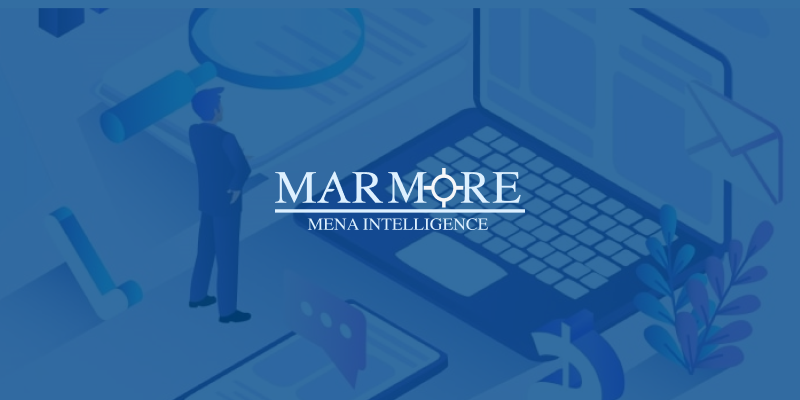Islamic finance industry has evolved and grown considerably since its inception in a rudimentary form during 1960s. The focus of the Islamic finance industry during its initial stage of inception was to create customer awareness and product development. However, the increased recognition and awareness, along with high demand resulted in rapid growth in the value and transformation of the industry over the next few decades.
Check out Report on "GCC Finance"
The global Islamic finance industry realised $2.1tn of assets in 2014 and is gearing up to more sustainable growth trajectory. At this stage it is imperative for the industry to focus on product innovation, which is considered to be one of the key growth drivers for the industry in the forthcoming years. The increased understanding and appetite for Shariah compliant products across the segments which includes Islamic banking, Takaful, Sukuk and funds calls for more innovative products and services to meet the growing demand.
Islamic Banking:
The continuing expansion of Islamic banking sector in key markets such as Saudi Arabia, Malaysia, UAE, Kuwait and Qatar has resulted in strong competition. Moreover, the Islamic banks face the challenge of lower profitability compared to their conventional peers. The estimated profitability of Islamic banks is 19% lower than the conventional banks, attributable to higher expenses . Islamic banks have a much lower per customer Average Product Holding (APH) of 2.1 compared to the conventional banks with an APH of 4.9. Development of newer products in the Islamic banking segment can lead to a wider basket of products providing cross-selling opportunities, resulting in higher APH and potential higher profitability.
Another challenge faced by the Islamic banking segment is they lack economies of scale and operating basic technologies. However, through technology and innovation the Islamic banks can bring down the cost of serving customers. Since the customers are also in favour of availing themselves financial services through mobile and internet banking channels, it becomes vital for Islamic banks to offer technological innovative services.
Sukuk:
In recent years, Sukuk products have seen significant innovation with the introduction of hybrid, convertible, perpetual, retail and insurance-linked issuances. The implementation of Basel III has led to Islamic firms’ issuing innovative Basel III‒compliant sukuk instruments to meet revised capital standards. Abu Dhabi Islamic Bank was the first to launch this type of issue in late 2012, and others have followed, including Dubai Islamic Bank’s perpetual $1 billion Tier 1 sukuk in March 2013 and Al Hilal bank in July 2014. Though there wasn’t a structural innovation, these issues used the Mudarabah structures as opposed to Murabaha or Ijarah structures predominantly used in Malaysian issuance.
The use of hybrid structures which involves more than one Islamic contract and issuances involving intangible assets such as airtime vouchers, broadband units and intellectual property are some of the recent innovative accomplishments of the sukuk industry. The industry continues to face hurdles as most of the existing structures are unable to support large size issuances in case of absence of viable asset base. The future of the Sukuk market is heavily reliant on innovation, where new assets, structures and markets continue to create new opportunities for investors and also serve to widen both the base of issuers, and the frequency with which issuers can access the Sukuk market.
Funds:
The Islamic asset management industry is forecasted to grow to at least USD 77bn in 2019 . However, the industry is unlikely in the near- to mid-term to bridge the USD 108bn supply-latent demand gap. One of the biggest challenges faced by the Islamic finance asset managers is the lack of product diversification.
As the GCC region HNIs and families seek to protect wealth from the rout of the market swings, succession planning is deemed to become of high significance in the coming years. Diversification into broad range of assets classes is the obvious strategy to adopt, however, the requisite of Shariah compliant family offices to invest in Shariah compliant instruments makes the task of the wealth and asset management advisors extremely formidable. This challenge can be overcome by providing innovative investment solutions to these family offices that include greater access to conventional funds feeder fund structures and Shariah compliant structured investment products.
Another, prospective opportunity for the wealth managers is to align themselves with conventional “Socially Responsible” funds, since Socially Responsible funds like Islamic funds avoid investments in alcohol, gambling, arms manufacture, tobacco and also avoid high leverage and investments in highly speculative derivative products. A synergy between Islamic wealth managers and Socially Responsible funds can result in rapid growth in Shariah compliant investment products.
Apart from the Socially Responsible funds, the asset management industry can look for development of innovative structures to access assets held within institutions such as waqf and takaful. Private equity is another interesting area, as the shared risk-and-reward characteristics of the asset class are a particularly appropriate structure for Islamic investors.
Takaful:
Despite double digit growth rates in the recent years, the global gross takaful contributions amounted at an estimated USD 21.4bn as of 1H 2014 , contributing 1% to the global Islamic finance assets. Some of the key challenges faced by the industry are low penetration of insurance in key markets such GCC and Malaysia and limit product portfolio consisting of mainly “plain vanilla” products related to family, medical and motor takaful. By embracing innovation the takaful industry can look to improve its distribution and service capabilities to reach out to wider audience. Moreover, takaful operators can expand their product portfolio beyond traditional coverage to include segments as diverse as wealth management, educational planning schemes and retirement plans. Through innovation, the takaful operators can also achieve to offer complex products that include a savings or investment component.
Waqf:
Waqf, which refers to a religious endowment – a perpetual dedication of one’s wealth or a portion of it in cash or kind, and devoting its benefit or usufruct to religious and charitable causes. The global waqf assets are estimated in excess of USD 1 trillion but mostly are under-developed or poorly managed. The scale of assets size can be sustainable source of funding and can make significant contributions to the economy. The assets offer potential opportunities for Islamic finance industry and investors, however, the industry needs to devise innovative instruments and products to benefit from these assets and at the same time contribute to the growth of these assets.
Conclusion
Conducive regulatory framework comprising of comprehensive legislation, dedicated shariah commercial court, financial mediation bureau and arbitration centre for dispute resolution, tax neutrality policies, Shariah advisory council and Shariah governance framework are some of the essential aspects to stimulate product development and innovation across the Islamic finance industry. One of the biggest hurdles in the path of product innovation faced by the industry is the Shariah oversight. It is vital for the new innovative products to get wider acceptance and attract lesser criticism in the lines of mimicking the conventional financial products. This can be achieved by ensuring the innovative products not just being Shariah compliant in form but being compliant in substance as well.
Stay Tuned To Marmore MENA Insights!
Never miss a patch or an update with Marmore's Newsletter. Subscribe now!
Related Article
2024 Kuwait Banking: Interest Rates and NIM Trend Analysis
The blog discusses how net interest margin of Kuwaits banks has moved across interest rate cycles, in light of awaited policy rate cuts.
Read MoreAre ESG and Sustainable investing the same?
ESG and Sustainable Investing might seem to be related but both are distinct concepts. The GCC nations transition towards cleaner energy portrays a buoyant outlook for ESG and sustainable investing.
Read MoreBusiness Impact of IFRS Sustainability Standards for GCC
The impact of the recently issued IFRS sustainability standards, once adopted, is likely to be high, as GCC companies scramble to allocate adequate resources for the adoption.
Read More




